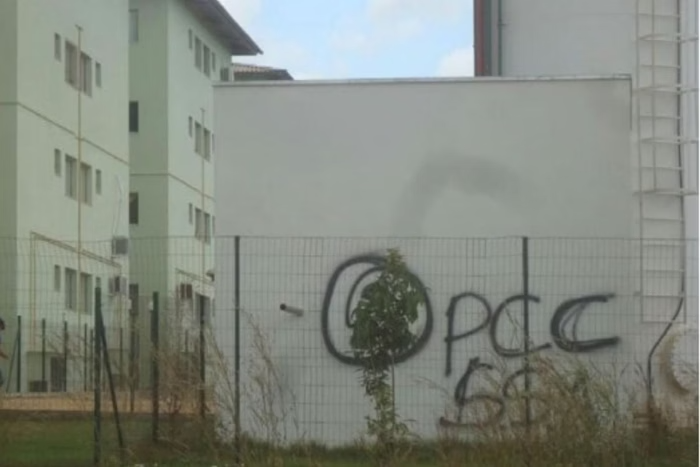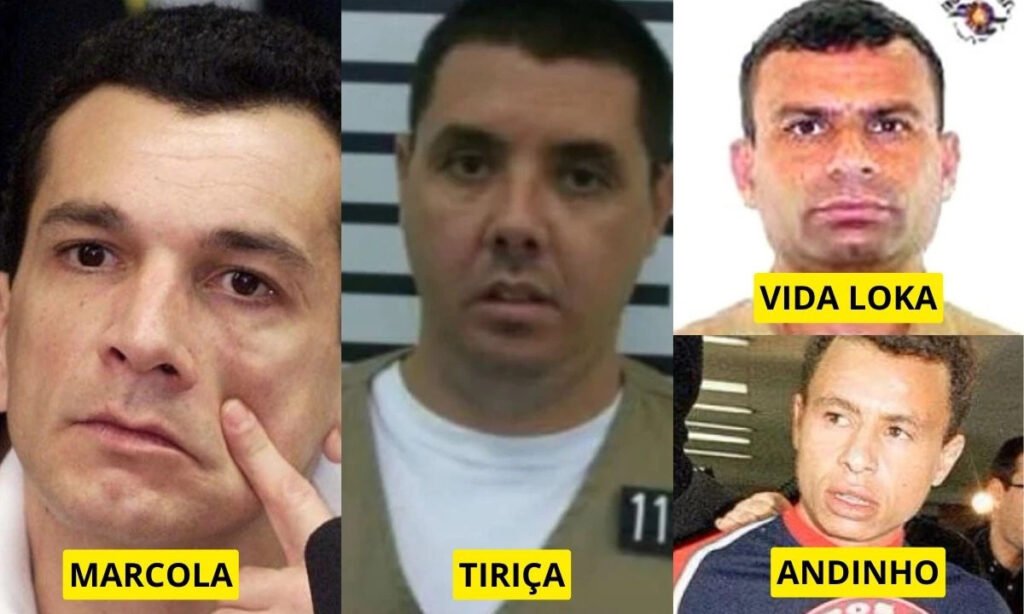SUMMARY
The recent rise in police lethality in São Paulo, alongside internal conflicts within the organized crime syndicate Primeiro Comando da Capital (First Capital Command or PCC), signals a potential shift in the state’s public security landscape. Under the Tarcísio de Freitas (Republican) administration, there has been a significant increase in deaths caused by military police officers, highlighted by operations like Operation Summer, which emphasize direct confrontation and have led to an alarming spike in police violence.
Simultaneously, the PCC’s internal crisis could lead to the emergence of a new faction, destabilizing its territorial control and increasing violence similar to that seen in Rio de Janeiro. São Paulo’s historically lower homicide rates, partially attributed by experts to the PCC’s unified control, are at risk if internal disputes lead to fragmentation. The state’s public security policies must address these emerging threats to prevent a significant rise in crime and violence, ensuring regional stability.
This Content Is Only For Subscribers
To unlock this content, subscribe to INTERLIRA Reports.
New Security Policy
The number of people killed by military police officers on duty in the state of São Paulo more than doubled in one year, according to official data from the Tarcísio de Freitas administration. There were 179 cases in the first three months of 2024, compared to 75 in the same period last year — a growth of 138%.
The year 2023 also showed an increase of 38% compared to 2022. This was the first year of the Tarcísio de Freitas administration. According to figures from the Public Security Secretariat (SSP) of the state of São Paulo, 353 people were killed by military police in 2023 compared to 256 in the previous year.
A possible explanation for the explosion of deaths in both 2023 and 2024 is Operation Summer – previously called Operation Shield -, carried out by the Military Police in Baixada Santista and which ended on 1 April with a total of 56 deaths.
The numbers released by the SSP are considered worrying and show a clear change in the São Paulo military police. They reflect the new security policy being implemented by Public Security Secretary of the State, Guilherme Derrite, who prioritizes confrontation over de-escalation, thereby increasing both police lethality and victimization.
The increase caused an internal crisis within the Military Police command, leading to the transference of more than three dozen of commanders that were opposed to the more confrontational approach.
The government has also been facing accusations of interference in the body camera program. São Paulo’s administration was already criticized by experts who claimed that it was gradually removing the funding to maintain the devices. For some analysts, authorities seem to remove elements that would allow to evidence police activity. Finally, in May, the state government proposed a new system that, according to the experts, was designed to work as a policing tool, reading car licenses and faces. 12,000 new cameras would be acquired, but they will only work if the officers decide to turn them on, thus, allowing misconducts to happen without record.

Operation Summer
As indicated previously, the Operation Summer in Baixada Santista, on the coast of São Paulo, reached 56 deaths in clashes with police between 1 January and 1 April 2024, more than those recorded in Operation Shield, carried out in the same region in 2023.
2023’s Operation Shield lasted 40 days and was triggered after the death of a military police officer from the Rondas Ostensivas Tobias Aguiar (Rota) team[1] Patrick Bastos Reis. 958 people were arrested and 28 people were killed by police.
Operation Summer is traditionally carried out between December and February to increase policing during the busiest period on the coast. However, the 2nd and 3rd phases, which, respectively, included police reinforcement and the installation of the Public Security office in Santos, took place after 2 February when soldier Samuel Wesley Cosmo, from Rondas Ostensivas Tobias de Aguiar (Rota), was killed in Santos.
Still, according to the SSP-SP, more than 681 people have been arrested, almost half a ton of drugs and 79 weapons were seized.
More Changes
Another important change implemented by the Tarcísio de Freitas administration was the authorization for military police officers from the state of São Paulo to carry out investigative activities. Authorization was given through a Detailed Military Police Term (TC/PM), which works as a record for occurrences considered to have less offensive potential.
With this authorization, military police would, for example, begin to seize evidence, carry out investigations, and request exams. It turns out that this type of investigation is traditionally carried out by the Civil Police. Tarcísio’s decision has already had practical effects. Recently, operations carried out against the First Command of the Capital (PCC) did not include the participation of the state’s Civil Police. One example was Operation “Fim da Linha” (End of the Line), which arrested people linked to bus companies in the state, on suspicion of links to the criminal organization. The action was carried out by the Public Ministry and had the assistance of military personnel and Revenue agents.
Civil Police representatives claim that the measure could represent a usurpation of their functions. The category association promises action against the change. The president of the Association of Police Chiefs of the State of São Paulo (Adpesp), André Santos Pereira, classified this as illegal. The measure further deepens the bad relationship between the Civil and the Military police in the state.
PCC Crisis
At the same time that the state of São Paulo gains new guidelines in public security policy, the largest faction in the state faces a crisis that could lead to the emergence of a new criminal faction. The rebellion of three members of the high command of the PCC against Marcos Willians Herbas Camacho, Marcola, the group’s top leader, marks a major crisis in the faction in two decades.

The rebels, led by Roberto Soriano, Tiriça, Abel Pacheco de Andrade, Vida Loka, and Wanderson Nilton de Paula Lima, Andinho, all imprisoned in federal facilities, challenged Marcola’s leadership, accusing him of treason and slander. The reason would be a conversation between Marcola and an employee at the Federal Penitentiary of Porto Velho, in which Marcola would have insinuated that Tiriça was acting against prison officers. The conversation was used by the Public Ministry against Tiriça, who ended up sentenced to 31 years for the death of a psychologist at the Federal Penitentiary of Catanduvas (PR), in 2017.
The intelligence services intercepted two messages: the first announced Marcola’s exclusion from the PCC and his supposed death sentence, while the second revealed the faction’s reaction, labeling the rebellion as treason and expelling the rebels, in addition to decreeing their deaths. The loyalty of the freed chiefs was evident when they shared only the second message, indicating their support for Marcola. Furthermore, rebel drug selling points were taken over and passed on to Marcola’s allies.
Previous Crisis
The last major bloody dispute between PCC chiefs occurred at the end of 2002 when Marcola entered into a collision course with César Augusto Roriz da Silva, Cesinha, and José Márcio Felício, Geleião, the two main chiefs until then. His colleagues sided with Marcola in the internal fight: Cesinha, Geleião, and their wives were sentenced to death by the faction, and for years the PCC tried to kill them. Cesinha was murdered, and Geleião died of Covid.
According to the police, it was this episode that placed Marcola at the top of the organization and changed the direction of the faction. Created under the slogan of combating oppression within the São Paulo prison system, the criminal group began to dedicate itself to international drug trafficking. If Marcola is removed from command, the police point out, the PCC will tend to change its profile and become a much more violent group.
With the leadership entangled in internal conflicts, concerns are mounting about the potential emergence of a new criminal faction. Former allies of Marcola, the organization’s primary leader, have now turned into adversaries, creating a backdrop of instability within the group.
First Pure Command
Attention is particularly drawn to the prospect of a new faction forming in São Paulo, potentially leading to a clash between this emerging faction and the state’s primary criminal organization. The Federal Police’s intelligence sectors continue to monitor the possibility of the faction splitting, giving rise to a new group known as First Pure Command (PCP), which could align with Red Command (CV) from Rio de Janeiro, currently the major competitor in crime of the PCC.
The PCC holds considerable territorial dominance, extending its influence not only in São Paulo but also across the borders of some Latin American countries. The PCC’s criminal model, established over the past three decades, is characterized by a franchise system, with members—many recruited from the country’s prisons—forming local groups that operate both inside and outside the prison system.
Recognized as the largest criminal faction in the country, estimates from the Public Ministry suggest that it has around 33,000 current members, although other studies propose an even higher number, around 40,000 members.
The Rio de Janeiro Example
The combination of a new public security policy with an internal crisis in the state’s largest criminal faction could have significant impacts on public security in São Paulo.
Despite being the most populous state in Brazil, São Paulo has homicide rates lower than the national average. Among the fifty most violent cities in Brazil, none are located in São Paulo. Furthermore, in the 2023 Brazilian Public Security Yearbook, São Paulo recorded the lowest rate of intentional violent deaths – 8.4 per 100,000 inhabitants -, while the national average is 23.3 per 100,000 inhabitants.

Experts attribute these relatively low numbers, especially in comparison to other important states such as Rio de Janeiro, to the dominance of a single criminal faction, the PCC. This centralized domain tends to reduce crimes related to territorial and drug sales points disputes, common in regions where there are multiple factions in conflict.
With the new scenario emerging — characterized by a policy of direct confrontation by the police and internal disputes or possible splits in the PCC — the situation in São Paulo could begin to resemble the situation in Rio de Janeiro. Currently, Rio records a rate of intentional violent deaths of 27.9 per 100,000 inhabitants.
Instability in the PCC could lead to a fragmentation of territorial control, resulting in violent conflicts similar to those observed in Rio de Janeiro. Recent history shows that disputes between rival factions are one of the main drivers of urban violence in Brazil. Therefore, public security policies should consider these consequences, without being complacent with any criminal organization.
[1] The 1st Shock Police Battalion of the São Paulo Military Police, also known as Rondas Ostensivas Tobias de Aguiar (Portuguese for Tobias de Aguiar Ostensive Patrols) is a tactical police unit, mostly known by its acronym ROTA (also Portuguese for route). Focusing on flexibility and quick reaction, its responsibilities include heavily armed motorized patrols, as well as deployment in the event of civil unrest to restore public order and counter-insurgency operations.




